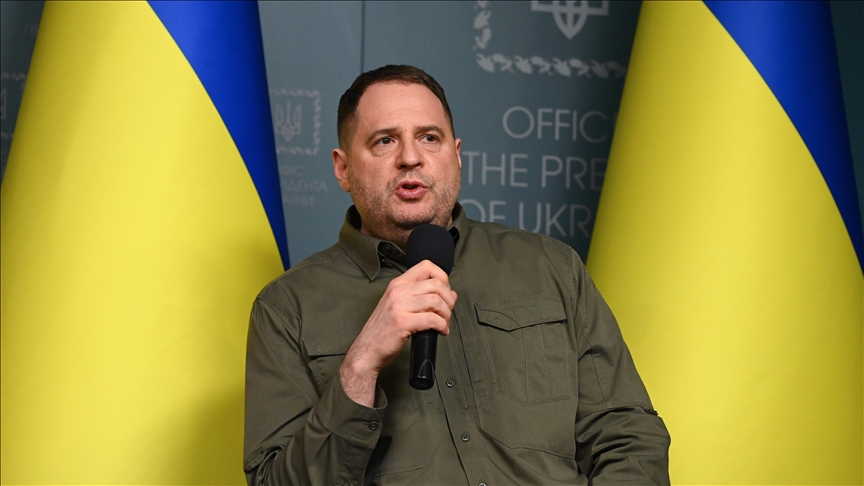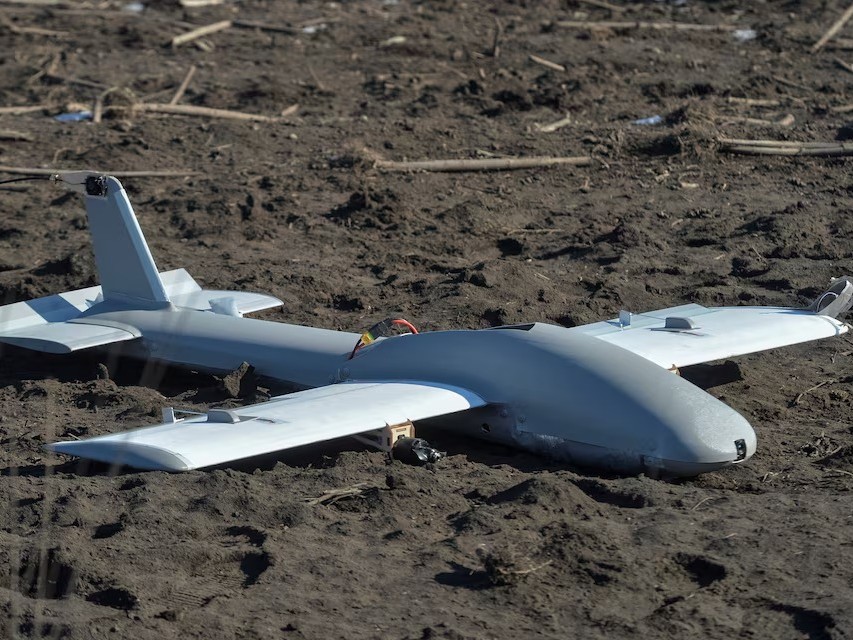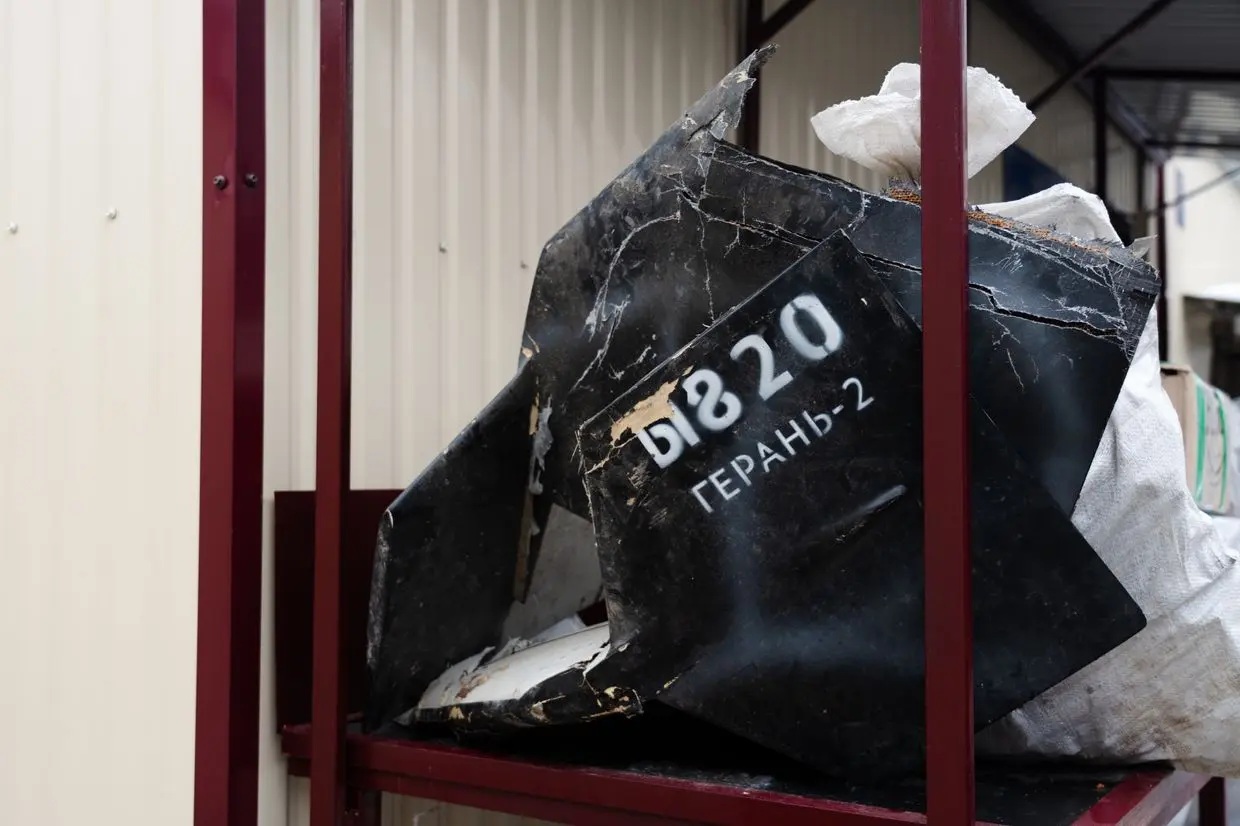
Top Ukrainian official says Kyiv finds Indian-made components in Russian attack drones
Ukraine Claims Indian Parts Found in Russian Attack Drones
In a significant development, a top Ukrainian official has claimed that Indian-made electronic components are turning up in Russian attack drones deployed in Ukraine. Andriy Yermak, head of Ukraine’s Presidential Office, made the statement on Tuesday, sharing a news report that has sparked diplomatic concerns.
The Hindustan Times, a major Indian daily, reported that an investigation by Ukrainian authorities uncovered Indian-origin components in drones used against Ukrainian targets. These drones, according to Ukrainian claims, are being employed both on the battlefield and against civilian infrastructure.
Vishay Intertechnology and Aura Semiconductor Under Scrutiny
The report cited unnamed sources and internal documentation that identified components from two Indian companies—Vishay Intertechnology and Aura Semiconductor—as present in Russian drones. Ukraine’s findings reportedly led to at least two formal diplomatic complaints submitted to India’s Ministry of External Affairs since 2023.

Further, Ukrainian diplomats raised the issue with EU Sanctions Envoy David O’Sullivan ahead of his recent visit to New Delhi. The allegations complicate India’s delicate balance between upholding ties with Russia and adhering to international norms, particularly in relation to exports of dual-use technology.
India Responds to Allegations of Dual-Use Exports
India’s Foreign Ministry, responding to the report, reiterated that the country’s export policies strictly adhere to global non-proliferation obligations. Spokesperson Randhir Jaiswal said India employs a robust legal framework to govern the export of dual-use items—those that can be used for both civilian and military applications.
He added that due diligence processes are in place to prevent violations of Indian laws. However, he did not specifically address the Ukrainian claims regarding Vishay and Aura Semiconductor.
Ukraine Urges Global Action to Halt Drone Supply Chain
Ukrainian official Andriy Yermak, citing the Hindustan Times report on his official Telegram channel, expressed concern over the presence of Indian parts in hostile drones. He stated, “Unfortunately, we are finding Indian components in Russian attack drones.”
Yermak stressed that these drones actively target civilians and soldiers alike, causing widespread destruction. He called for international cooperation to cut off Russia’s access to foreign-made components, particularly those used in unmanned aerial systems.
Energy Trade Also Under Fire
Along with the drone component allegations, Yermak criticised countries that continued to purchase Russian energy. He argued that such trade indirectly finances Moscow’s military campaign. “Buying Russian energy resources is financing war, which does not contribute to peace,” he added.
This comment echoes ongoing calls from Ukrainian leadership, urging nations to reduce their dependence on Russian oil and gas, a major source of revenue for Moscow’s defence expenditures.
India’s Delicate Diplomatic Balance
India has maintained a delicate diplomatic balance throughout the Russia-Ukraine conflict. On one hand, New Delhi has strengthened trade relations with Russia, particularly in the energy sector. On the other, it has maintained diplomatic neutrality and has repeatedly called for peaceful resolution through dialogue.
The latest revelations about Indian components allegedly ending up in Russian drones could test this diplomatic equilibrium. As Western partners increase pressure on global supply chains, India’s position on dual-use exports will likely face increased scrutiny.

What This Means for Global Sanctions Enforcement
These claims come amid broader global efforts to tighten sanctions compliance and prevent Russia from accessing foreign-made technologies. Drones have become a vital part of Russia’s battlefield operations, often used for precision strikes and surveillance.
If confirmed, the presence of Indian-made parts in Russian UAVs could undermine efforts to isolate Russia militarily, while placing Indian exporters under renewed international scrutiny.
Conclusion
The allegation that Russian drones used in Ukraine contain Indian components raises pressing questions about global arms trade compliance, export controls, and diplomatic accountability. While India maintains that its export system is legally robust, Ukraine’s accusations could strain international perceptions.
As the war drags on and sanctions evolve, countries like India will face increasing pressure to audit their defence-related exports and prevent inadvertent support for Russia’s war effort.
References
- Hindustan Times – Report on drone parts
- Ukraine Presidential Office – Telegram statement
- Indian Ministry of External Affairs
- Reuters – Ukraine drone war coverage







